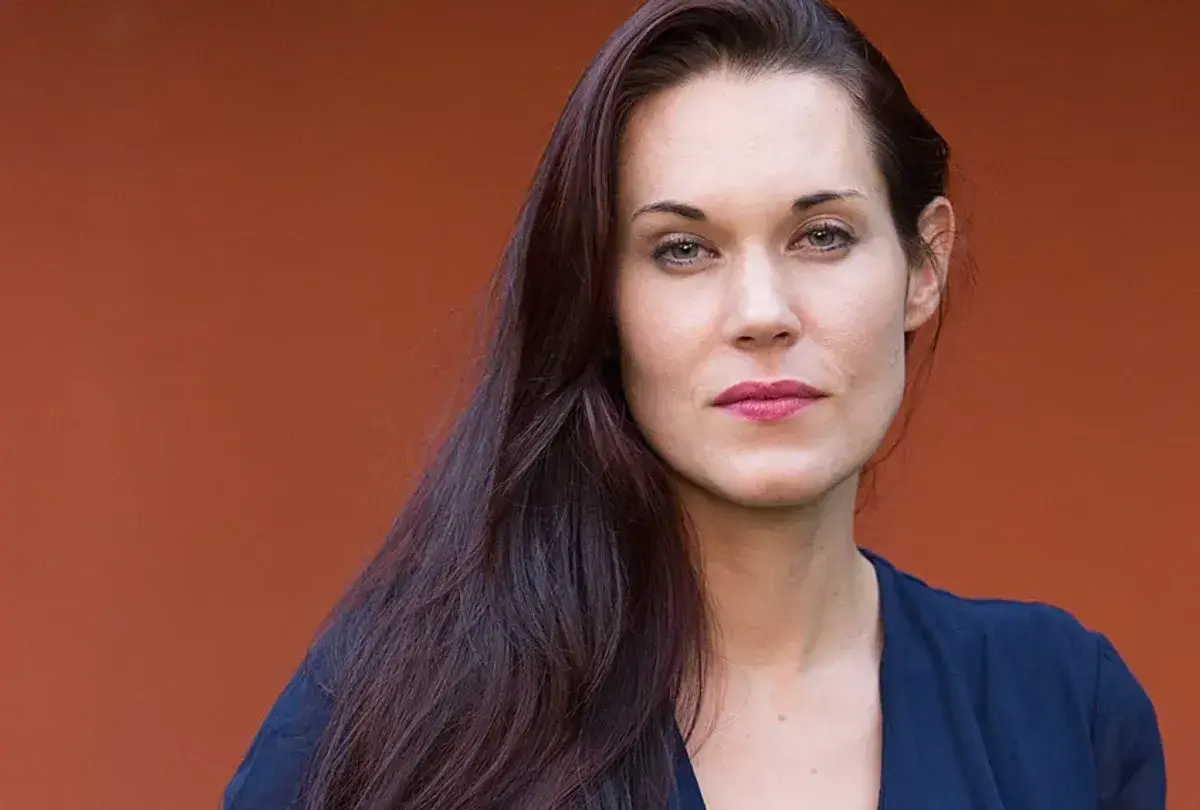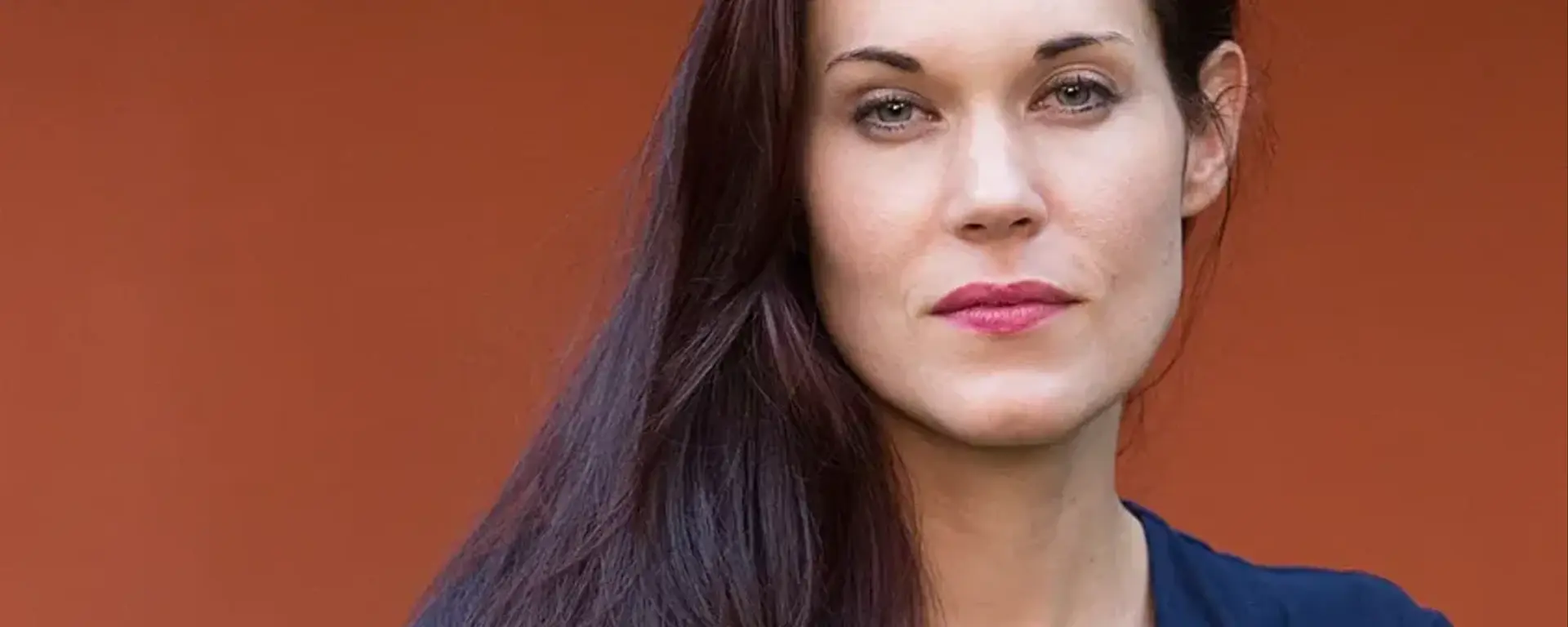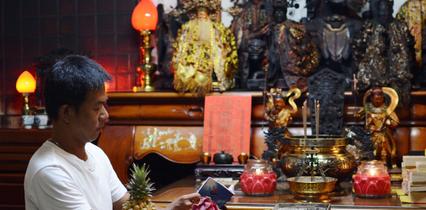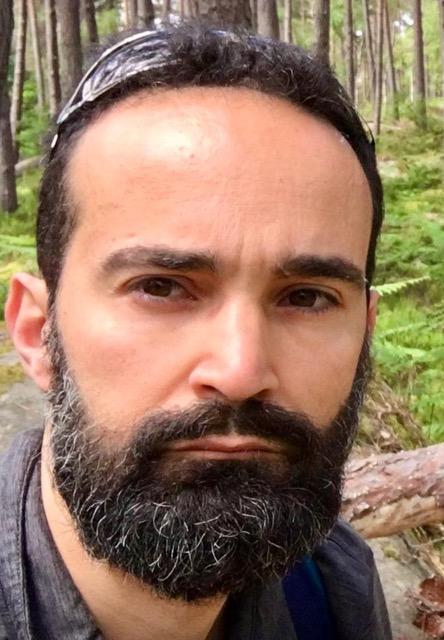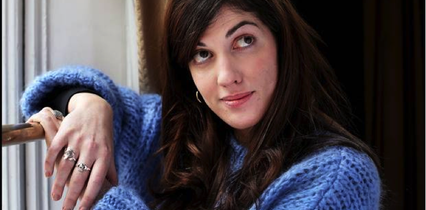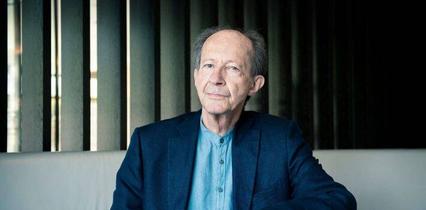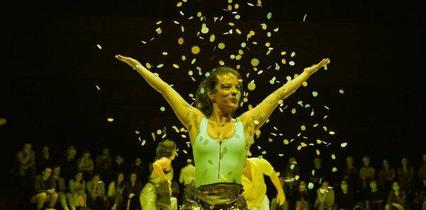Teal Swan is a new age spiritual leader who provokes extremely polarized reactions. Her discourse draws on a rich philosophical history, skilfully blending themes from the Platonic tradition, German idealism and Hinduism. We will explore the spiritual and philosophical origins of the new age movement, and its major role in understanding and criticizing contemporary individualism.
Teal Swan, the New Age and Contemporary individualism
Gurus or spiritual leaders such as Teal Swan elicit extremely polarized reactions: true followers and sympathizers are opposed by a majority who scoff at the irrationalism of beliefs such as the law of attraction (the famous principle according to which our beliefs “manifest” in the world), the big unified consciousness of which we are all a part, the soul and energy that inhabits plants or even minerals, the spirit guides or demons among us, or a universe structured like a 12-dimensional millefeuille. A growing tension is developing between the rationalist, scientific faction and the spiritual scene formerly known as New Age (a term less widely used today), which is becoming increasingly mainstream and spreading as an unofficial background doctrine to the rapidly expanding milieu of so-called holistic disciplines such as reiki, sophrology and homeopathy. Essential to this expansion is the role played by a silent mass of sympathizers who don’t necessarily accept the whole New Age creed , but are vaguely inspired by it, adapting it in their own way. A sympathizer may believe, for example, that we are all connected by immaterial energy, and nothing more specific. Another may believe in reincarnation.
The opposition between contemporary spirituality and scientific rationalism is one of the divides that most structures our cultural scene. Dialogue has become impossible: in my own circle alone, I’ve seen friendships break down because of this, particularly during the Covid crisis. Between the two camps, the rationalists control the official public discourse, but are losing the battle on the field of people’s minds.
Yet contemporary spirituality is far more interesting than the scorn of the rationalists would suggest. First of all, it has a complex philosophical history, which skilfully blends themes from the Platonic tradition, German idealism and Hinduism, a genesis masterfully reconstructed by New Age Religion and Western Culture (W.J. Hanegraaff), a true masterpiece in the history of ideas. But above all, it holds major stakes for understanding the evolution of our society and for a constructive critique of the hyper-individualistic Western lifestyle. To understand this, we need to start by clarifying the links between spirituality and personal development.
The gray area of personal development
What is the field of personal development? It’s all kinds of knowledge, beliefs and techniques not entirely (or not yet) accepted and scientifically validated, used to achieve personal success, as defined by the normative model of Western societies, that is to say a good job, money, love and social connections. If the approach is validated, formalized, by definition it becomes respectable psychology, therapy paid for by the state healthcare system , and no longer a matter of personal development.
The field of personal development is not defined by the content of its specific doctrines, but by the use to which they are put. One example is Stoic philosophy, which has recently become fashionable as personal development. In principle, anything can be used to help the individual.
Why should we trust “suspect” methods? Because they promise much more than any respectable tool (or the same result at a lower cost), just as alternative medicine is said to succeed where traditional approaches fail.
This underscores the individual’s need for support, as emphasized by authors such as Sloterdijk in You Must Change Your Life, because life in the Western world is far too complicated and difficult! Secure, of course – individuals are protected by social services, can get food stamps and call ambulances that arrive within 20 minutes – but difficult. Our democracies are built on individual freedom: compared to the more restrictive cultures that required us to start a family at a young age, and choose from a limited range of respectable professions – codifying life, as it were – being free is more pleasant (our instinct is always to do what we want!) but implies more responsibility and ambition. Freedom is easy to desire, but hard to achieve. Millions of people are actively engaged in a soul-searching process, not knowing what they really want, and declaring themselves dissatisfied with past and present professional and human experiences.
It is this colossal and inexhaustible demand that creates the gray area of personal development, the illegitimate child of contemporary individualism.
Let’s face it, there’s a slight sense of unease associated with personal development and its followers. Although it has lately become more mainstream, the unease is still there. It’s expressed in a question that’s constantly asked to self-improvement enthusiasts: why can’t you just be yourself, living your life, making your own choices?
By proposing a whole panoply of techniques, the personal development world implicitly paints an image of modern life as being too complicated: to be even remotely successful would seem as hard as running a marathon. It’s this specific implication that bothers us. Personal development takes issue with the democratic project of success and freedom for all, by denouncing its excessive difficulty, which is an indirect and subtle, almost underhand, way of criticizing it. But uneasiness comes from denial: we’re only embarrassed by problems we don’t want to see. Part of us is well aware that the diagnosis of an over-complicated life is relevant, hence the ambivalent attitude of both interest and contempt, and the birth of a gray zone comprising tools to help the individual that are seductive but impossible to fully legitimize.
The reason why personal development is such an interesting field for understanding the deeper structures and evolution of our society is that it presents us with a forced choice: the gray zone is unstable, any specific practice will not stay in it for very long. Confronted with the denial of a problem, either society ultimately changes, or the self-help solution to tolerate such and such problem becomes fully mainstream. Meditation and the psychosomatic origins of health issues are good examples of personal development becoming mainstream in the face of the increasing complexity of life. Let’s not forget that up until the 70s and 80s, it was the hippies who meditated, and the belief that stress is responsible for all kinds of illnesses was considered esoteric. Under no circumstances should we ignore the practices and beliefs of the milieu: one day, through slow social acceptance, they may become our own, or they may point to necessary changes in our lives. Today, meditation is used in the workplace to manage stress: as an alternative, we could switch to the 4-day workweek.
While we mainly think of it as selling techniques, exercises or methodologies, beliefs hold a very special place in personal development. There’s nothing like the power of faith: if you believe you’re destined for success, this will be more effective than any strategy. That’s what the Law of Attraction is all about, where beliefs become reality.
In this sense, New Age spirituality can be interpreted as the ultimate form of personal development. Far from being far-fetched, these beliefs are the most effective adaptation kit for the modern world, which is why they are winning the war on rationalists in the field, even though scientifically-minded people control the institutional discourse.
Teal Swan, critique of individualism
In this panorama, the figure of Teal Swan, who stands out above all for her great intellectual and philosophical rigor – the collection of videos she has been publishing online once a week for several years being a kind of new age summa without equal – is at the same time typical, almost caricatural, and profoundly atypical, which is what makes her so interesting.
In this panorama, the figure of Teal Swan, who stands out above all for her great intellectual and philosophical rigor – the collection of videos she has been publishing online once a week for several years being a kind of new age summa without equal – is at the same time typical, almost caricatural, and profoundly atypical, which is what makes her so interesting.
She is a larger-than-life character: beautiful but cold, she has had a difficult and adventurous life. As a child, she fell under the sway of a cult where she was tortured, unbeknownst to her parents. As a teenager, she managed to quit through a rocambolesque escape worthy of the best thrillers. After having been a professional ski athlete, she now travels the world teaching her followers at sold-out seminars. Often betrayed by her own close supporters, who become her worst enemies, she is the target of numerous attacks and scandals.
Most of her teachings are representative of New Age doctrines as the ultimate adaptation to individualistic society. She advocates the idea of a life mission chosen by our soul before incarnation – what better way to cope with the anguish of individuals struggling to find their way than to tell ourselves that the choice has already been made, and that we just need to remember it and get back on track? It couldn’t be better. Note that other personal development methods not involving supernatural beliefs can only promise a likely outcome, a process by which we may find our true passion and mission, without achieving the level of certainty offered by this belief. Secular and more plainly psychological approaches to personal development are completely outperformed by spirituality. Nothing beats faith.
Another of Teal Swan’s individualistic obsessions is the quest for compatibility as a principle of life. We’re all unique beings, born with a secret mission, but like ugly ducklings, we could end up in the wrong place, in an environment that doesn’t value us. The key, then, is to look for compatible people, soul mates, the right match, and search for it halfway around the world if need be. In love, at work, everywhere. This kind of belief helps us tolerate a rootless global market where billions of people exchange skills, and where we could end up as a computer scientist in Antarctica to earn money: but if, on a spiritual level, we’re born to go wherever our true match is, what’s the harm in abandoning our origins?
What’s atypical about Teal Swan, on the other hand, is a second corpus of doctrines denouncing isolation and loneliness in the modern world. At first glance, the contradiction is striking: New Age doctrines are designed to help us tolerate individualism by denying its evils, but, surprise, Teal Swan also teaches us that we should live close to our dearest friends, that a woman cannot realistically raise her children alone, that we are made to live in community, that we should dedicate more time and energy to friendships to counter the obsession with romantic relationships that isolate us from the group.
By claiming all this she would seem to score, so to speak, own goals. In fact, something extremely interesting is going on here. She’s not contradicting herself at all. Rather, she’s uncovering the objective limits of an individualistic logic, of which she is (and remains!) a proponent. In other words, she recognizes the need for connection and community that is inseparable from human nature, even if we try to conceive of human persons as autonomous and «living in their own reality». She pushes individualism to its extreme limits, to the breaking point. In philosophy, this would be called a dialectical reversal. If you want to find out how deep a human can dive, what better opinion is there than asking a diver in search of a new record? There’s nothing like an expert’s opinion to set the limits of what’s attainable in one’s own field.
Teal Swan offers us an unexpected gift. Because, we have to admit there’s an ambient malaise that’s gaining ground in advanced Western countries: our model of life seems out of breath, at the end of its tether. The problem with this diffuse perception, though, is that it’s a vague feeling, easily ignored and offering no concrete plan of action.
What we need is a more precise X-ray scan of the breaking points, the fault lines, that will tell us exactly which bone is going to crack, not just, vaguely, that the West is sick. This is what Teal Swan has the courage to do. We have to give her credit for it, because general criticism is easy and goes unopposed. Denounce rampant individualism and loneliness in the West, and everyone applauds, but say, as she does, that a mother can’t raise children alone, and there’s an outcry in the name of autonomy and freedom of choice. The same goes for the suggestion that good friends who have become estranged by the vagaries of globalized capitalism should move closer together: a nice ideal, but come on, everyone will eventually get on with their life and do what suits them best.
In the coming decades, we’ll have to decide the price we’re willing to pay to begin the transition to a more humane society, because no transition is painless, or it would have happened already. In the context of this challenge for the West, Teal Swan’s exploration of the limits of individualism, which she pushes to its breaking point, seems to me to be a contribution that deserves further attention.
Retrouvez la version française de cet article sur le lien ci-dessous :
